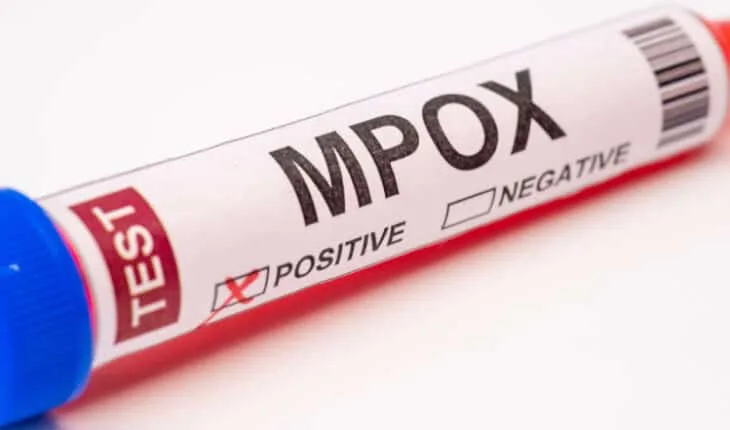An mpox resurgence in the European region this spring and summer? To prevent that, key measures must continue.
One year since its biggest ever mpox outbreak, the WHO European Region – covering 53 countries across Europe and Central Asia – is celebrating success in controlling the spread of the disease as the number of cases continues to decline. In the initial months of the outbreak, the European Region had the vast majority of cases globally. But strategic collaboration between health authorities and the most-impacted populations – including timely risk communications and community engagement, along with a focused mpox vaccination campaign in some of the hardest-hit countries – helped bring numbers down rapidly to practically no cases being reported at all, in a relatively short time.
Now the WHO Regional Office for Europe is calling for vigilance amid concerns that spring and summertime could see mpox cases flaring up once more. Pre-empting this, and coinciding with the International Day Against Homophobia, Biphobia and Transphobia, WHO/Europe is launching a new mpox campaign today to remind people that even though it no longer is defined a public health emergency of international concern, mpox has not gone away; anyone can be infected; and that we have, and must use, the tools to further control and eventually eliminate it.
The new mpox campaign leverages the European Region’s year-long experience in responding to this outbreak, including growing evidence on the disease and measures to control it. The campaign will:
- Highlight what everyone – including and especially the most affected communities, health authorities, health workers, and event organisers – can do to help control mpox and eventually stamp it out.
- Provide a platform for especially vulnerable communities, including underserved populations, to talk about their mpox-related experiences, needs and insights.
- Shine a light on the critical contribution of organizations who represent gay, bi-sexual and other men who have sex with men, trans people, sex workers and migrants. These organisations have played and continue to play a crucial role in fighting mpox. Some of their work and successes are illustrated in a compendium – a collection of case studies – launched as part of the campaign.
The campaign is timely. According to the latest data, at least 17 more people have contracted mpox in 8 countries in the WHO European Region, in the four weeks up to 4 May 2023. While the numbers remain low, as does the risk to the broader population, it’s vital that health authorities keep monitoring and responding to mpox outbreaks. A possible rise in mpox cases over the coming months could be triggered by:
- People gathering for spring and summer events, including Pride-related festivals, given the likelihood of sexual activity occurring.
- A lack of access to testing and vaccines, especially for underserved populations like sex workers, trans people, migrants, and homeless people.
- People infected with mpox arriving from countries outside of Europe and Central Asia.
“Our efforts to control the mpox outbreak appear to have paid off, and that’s great news. I commend health authorities and the most-impacted communities for their strong partnership in controlling mpox, including vaccine roll-out, community outreach and actions to safeguard individual and wider community health, along with concerted efforts not to stigmatize those affected” said Dr Hans Henri P. Kluge, WHO Regional Director for Europe. “Elimination is within our reach, but let’s not forget that mpox is still circulating, as we’ve recently seen in our region. Mpox cases could resurge this spring and summer as festivals and events – where sexual activities might occur – get under way. Some countries in the European Region are still seeing persistent, low levels of transmission. Beyond our region, localised spikes remind us that this outbreak is far from over. Let’s renew our collective efforts to ensure we remain on track towards eventual elimination – it can be done.”
A package of new WHO/Europe publications– including an mpox policy brief, a compendium of case studies and a risk communication toolkit – outlines the recommended actions communities, health authorities and providers, and event organisers can take (see below).
“Mpox should still very much be a concern to health authorities and the most impacted communities alike in the WHO European Region,” said Dr Richard Pebody, High-threat Pathogen Team Lead at WHO/Europe. “Cases might be on the rise again this year. And even if we are lucky, and this doesn’t happen, mpox could pick up again the following year. We simply cannot be complacent. WHO/Europe’s latest mpox policy brief offers a roadmap to countries on how to control and ultimately eliminate the disease in our Region in the long run.”
“I’m concerned that mpox could come back, you know, the sequel, but I’m hopeful we’ve learned a lot and we have shown that we can come together as a community and really protect ourselves,” said Martin Joseph, a UK-based broadcaster and host of a podcast about mpox. “As someone who went through mpox, it was one of the most testing and life-changing experiences from a mental health point of view, and it really impacted me and I’ve had to do a lot of work since then to look at my life and look at everything that led to that point.”.
“It is important that the most affected groups – predominantly gay, bisexual and other men who have sex with men – as well as health authorities and health providers remain on high alert,” concluded Dr Kluge. “As we celebrate diversity and inclusion on the International Day Against Homophobia, Biphobia and Transphobia, as well as Pride just around the corner, let’s also remind ourselves that we still have a long way to go to stamp out shame and stigma related to sexual health. It’s critical that we normalise talking about seemingly sensitive or uncomfortable topics in the interest of our health and well-being. Let’s not allow our success in controlling mpox over the past year be overshadowed by another wave of infections this spring and summer. Be informed. Protect yourself and others. And if you can, get vaccinated.”
- Gut microbiome could delay onset of type 1 diabetes - 3rd April 2025
- The da Vinci 5 Robot Is Set To Transform Bariatric Care: - 31st March 2025
- Beyond money: the hidden drivers fuelling child food insecurity - 31st March 2025






